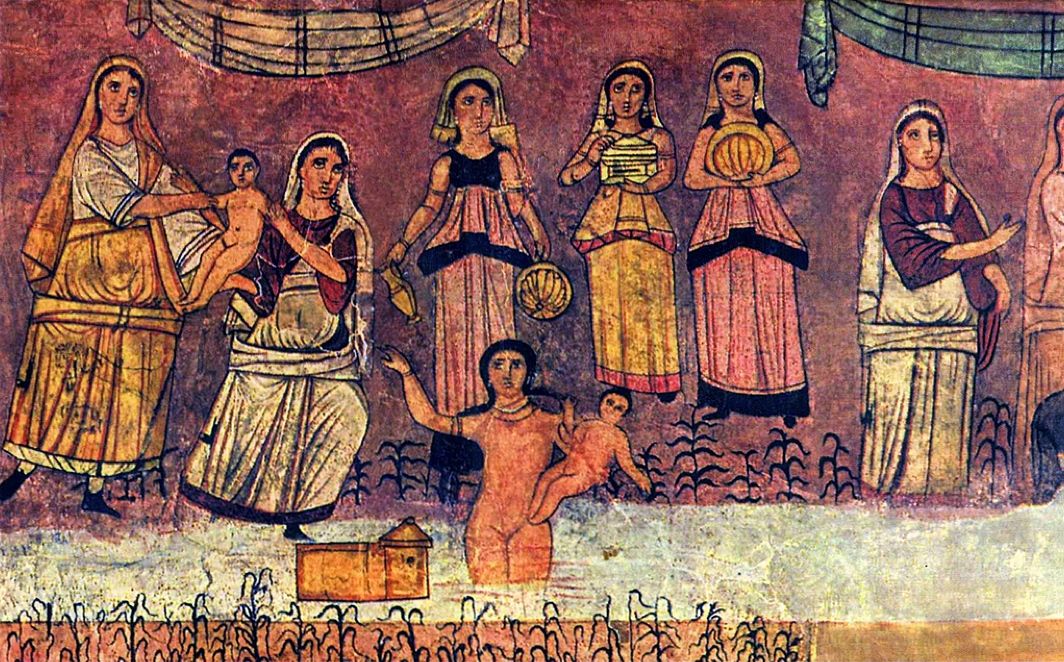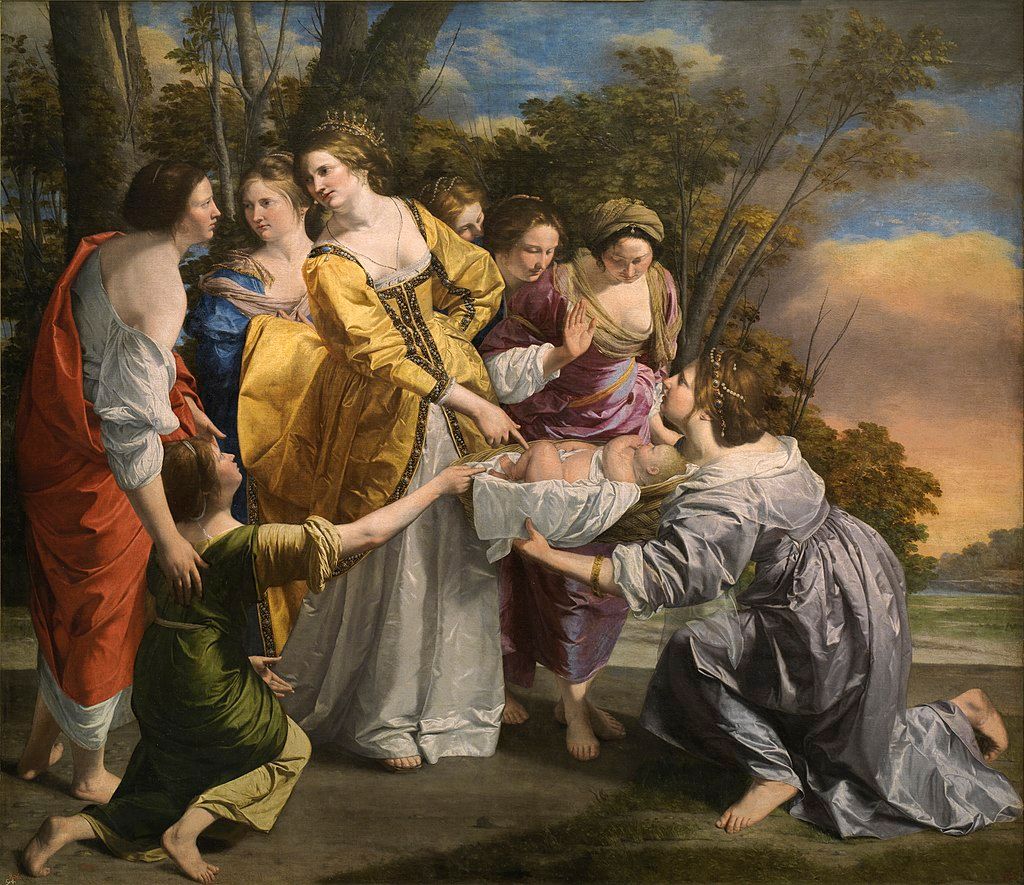Shabbat Gathering: What I Learned from Cousin Gerry.

Dear Chevra, as is our custom, we will gather tonight at 5.45p ct to welcome Shabbat. These are the coordinates:
Zoom
Meeting ID: 963 5113 1550
Password: 1989
Phone: +1 312 626 6799
(To unsubscribe from the newsletter, click the link at the very bottom of this email.)
Writer’s note.
I’ve lived with this story for many years now and wrote it up, for the first time, almost ten years ago. It’s been published and was well received. As the story is connected to this week’s Torah portion, I’m sharing it with you now.
Here we go.
Sometimes something very silly will point me to a divine truth. Cousin Gerry showed me the way once.
My wife at the time and I already had one daughter and working on our second child. As with the first, we didn’t have any trouble getting pregnant but we’d had two miscarriages following our first child and we were despairing but got pregnant yet again. Our second daughter was born by emergency C-section almost a month premature but was perfect in every way. Because she was indeed a miracle, we decided to call her Batya, daughter of G-d. Little did we know the whole background of what the name meant.
Who is Thermutis?
We had recently moved to the San Francisco Bay area from New York City and left behind all our many relatives including our cousin Gerry, zt”l. Gerry was a gentle and simple soul. He was the oldest of three brothers and like the rest of his family was wickedly good with quick puns. He collected Franklin Mint commemoratives, was a lifelong Yankees fan who could recite for you his favorite games pitch-by-pitch, and lived with his mother until she died. Gerry never married. He sent us a card in honor of Batya’s birth, but it was addressed to “Thermutis.” Gerry was a bit silly, so we didn’t think anything of this until Batya’s first birthday when she received another card from him again addressed to Thermutis. And these birthday cards addressed to Thermutis continued for several years.
We had no idea what Gerry meant by Thermutis and after six years, we were too embarrassed to ask Gerry what on Earth he was talking about. We felt we couldn’t ask him about it because it might look as if it had taken us six years to notice or care. We were stuck in one of those Larry David moments, trapped in social awkwardness. And, to be honest, we weren’t sure we cared. We wrote it off to Gerry being Gerry. Thermutis? And, by the way, Sefaria didn’t exist yet.
Finally, though, I leaned into the question and found the answer. In the process I unearthed one of the most amazing midrashim I’ve ever heard and learned that cousin Gerry must have been paying close attention during Hebrew school.
A closer reading of Shemot.
The story goes back to Parshat Shemot in Exodus (this week’s parsha) where baby Moses is set adrift in the Nile and Pharaoh’s daughter finds him. Some rabbis wondered what Pharaoh’s daughter was doing bathing in the Nile when there were surely so many splendid baths in Pharaoh’s palace. Why was she braving the crocodile, asp, and hippopotamus? Their answer was that she needed fresh, running water and wanted to do something out of the eyes of the royal court: Some rabbis concluded she was going to mikva to convert. As part of her conversion, Pharaoh’s daughter, Thermutis, took the name Batya. I know, it seems a bit far fetched, but welcome to Talmud.
In Legends of the Jews, Ginzberg writes this:
At the time of the child’s (Moses’s) abandonment, God sent scorching heat to plague the Egyptians, and they all suffered with leprosy and smarting boils. Thermutis, the daughter of Pharaoh, sought relief from the burning pain in a bath in the waters of the Nile. But physical discomfort was not her only reason for leaving her father’s palace. She was determined to cleanse herself as well of the impurity of the idol worship that prevailed there.
The legend Ginzberg relates probably goes back to Midrash Mishlei 31, a commentary on Proverbs 31:15, where we read this:
“She rises while it is still night” — this is Batya, the daughter of Pharaoh. She was a gentile and became a Jewess and they mentioned her name among the proper [women], since she took care of Moshe. Therefore she merited and entered the Garden of Eden in her lifetime.

Tying up loose ends.
All of this helps pave over some of the more difficult loose ends of the baby Moses story. Readers might have questioned why Pharaoh’s daughter adopted what was probably a readily identifiable Jewish baby and how Moses had such good, Jewish moral fiber as he grew up. (See the murder of the Egyptian overseer.) It also probably explains how Jochebed and Miriam knew when and where Thermutis / Batya would be in advance. (A rabbi from the beit din must have told them.) For me, this all makes perfect sense and is true.
I’ve been very blessed over the past several decades — when I lived in Pleasanton, California and when I moved to Madison, Wisconsin — to participate in Torah Study groups with some Very Smart People. In California I studied with people who worked at Lawrence Livermore National Laboratory and in Madison, I study with the over-educated people usually found in university towns. But no matter where I’ve been, a couple of times a year, we face the question of whether or not the Torah is true.
Is it true, or merely real.
I hear the word true in air quotes and always come down on the side of the affirmative. Yes, everything in Torah, and for that matter Talmud etc., is true. But I make a distinction between something being true and being real. I don’t believe it’s true in the way fundamentalist preachers think is true, or true in the sense that the world is 5783 years old, but true in the way that the story is true. I’m an English Lit major and I’ve been thinking for a long time about stories and what they mean to me and to culture. I also worked for several decades in public relations and created stories that were pretty much “true.” I don’t believe truth is fungible, but I do believe truth might have a couple of different meanings.
I don’t believe that the things we read about in Torah are real. Talking snakes, zoos on boats, giant angels et. al. aren’t actually real. However, the stories about them are true in that those stories have become archetypes for a large portion of the civilized world including me. Archetypes don’t meander on and off the stage of our culture. They come long before us and will endure long after us. Platonists and Jungians believe archetypes are the pure form of things, and just as there is the physics of the material world, so there are archetypes in whatever world psychology, literature, philosophy, religion etc. belong to.

Archetypes and the real real.
So, for most of us reading this right now, Torah, the Bible, is the ur-archetype and completely true. Torah in all its baffling, beautiful, contradictory splendor is the source from which flows most of our important ideas, either in sympathy with it or in contradiction to it. Christianity and Islam are both reactions to Judaism and have committed massive cultural appropriations of our beliefs and traditions. But, regardless of that, our stories surround us and are true because they are our stories. The way we understand the world and the way we react to what happens to us is all shaped by the archetypes we embrace or shun. The story about Pharaoh’s daughter is true for me.
For me, there is an infinity of great things about being a Jew and one of them is the wealth of stories we have. We have stories upon stories. We start off with Miriam, Moses and Thermutis in the Nile and end up with Batya, a missing hippopotamus, a secret conversion, and an adoption. There are so many fascinating stories like this that a normal person would never work their way completely through them in one lifetime.
Stories make sense of the world for us. There’s a field of psychotherapy called narrative therapy. In it, the therapist works with the patient to learn how the patient tells the story of her life. If the patient has a story that includes a tragic loss, then it only makes sense that the patient is depressed. But if the story can be turned around somehow, then the patient might feel better about her life. It’s like making a public relations program for your own life. In my own case, I’ve experienced the loss of my career, a huge tumbling down of my social status, and the loss my family and all this made me terrifically depressed not so long ago. On the other hand, if I had not experienced this loss, then I would have never been open to discovering the new adventure of my life. And that makes me feel wonderful. To be a Jew is to wrestle with a story until it is true for us.
So, Thermutis and Batya…
The story of Thermutis / Batya showed me that we all have new paths we can take should we have the courage, and Batya must have been very brave indeed. When I learned this midrash, I had just started my deliberate path to conversion. I had learned why I was turning away from what I believed before and began turning to Judaism. Learning this midrash made my turning ever more enthusiastic. I realized I was turning to an immense world filled with stories and opinions and debates about those opinions, so I borrowed some of Batya’s courage for myself. I never told Gerry that the breadcrumbs he left on my daughter’s birthday cards helped lead me to mikva and Torah and that is a deep regret I carry with me. He should have known about how he helped show me the path to Sinai.
I never expected that my daughter’s name would come to reveal so much truth for me. And I certainly never expected that cousin Gerry would open the door onto such a miraculous world of all these stories and all the truth they reveal. Here’s one final example from the Zohar (3:167a:4). It describes Batya in the afterlife.
Batya returns to the women, and they delve into precepts of Torah. … The precepts of Torah that they did not merit to fulfill in this world, they now delve into, along with their meanings, in that world. And all these women that dwell together with Batya, Pharaoh’s daughter, are called serene women, and they are not troubled by the pains of gehenna at all.
It’s beautiful to think about Batya in the Garden of Eden leading an infinitely long Torah Study attended by serene women. They pore over the stories, find meaning, learn the mitzvot and measure their lives and experiences against the commandments. I believe this is true.
May all your stories always be happy ones or simply ones about struggle that conclude with you moving yet another inch forward into your enlightenment, and from truth to truth. May you, like Batya, be serene.
And may it be for all of us a blessing.
See you tonight!
Gut Shabbes!
All my love,
brian.
PS
From the Foward:
QUOTE OF THE WEEK |
’די אייער לערנען די הינער.‘ |
‘The eggs are teaching the chickens.’ – Yiddish Proverb |
-30-